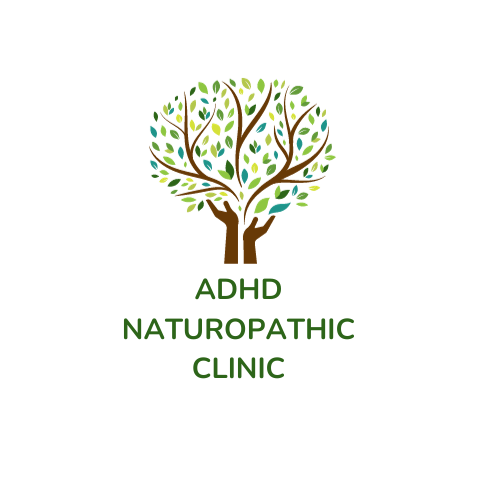ADHD is not a behavior problem—it’s a neurodevelopmental condition that affects how the brain regulates attention, emotions, and impulses. Yet, in the face of big emotions and difficult behaviors, many well-meaning adults respond with yelling or strict discipline, thinking it will “snap” the child into line. Unfortunately, this can backfire—especially for children with ADHD, whose brains are still developing and are more sensitive to stress.
In this article, we’ll explore the science behind how yelling impacts brain development in children with ADHD, how emotional trauma affects long-term mental health, and what gentler, more effective strategies you can use instead.
Yelling and ADHD: Why It’s More Harmful Than You Think
If you're raising or caring for a child with ADHD, you know how emotionally exhausting it can be. Emotional outbursts, forgetfulness, impulsivity, and what seems like defiance can leave you at your wit’s end. Many parents end up yelling—not out of cruelty, but out of frustration, desperation, or not knowing what else to do.
Let’s be clear: this is not about blaming anyone. Most of us were never taught how to support neurodivergent children. This blog is about understanding the science and offering new tools to help both you and your child thrive.
If you've ever said, "They only listen when I yell," or "I’ve tried everything and nothing works,"—keep reading. There is a better way.
The Brain Under Stress: What Yelling Does
When a child hears yelling—especially during emotionally charged moments—their brain perceives it as a threat. This immediately activates their fight, flight, or freeze response, flooding their body with stress hormones like cortisol and adrenaline.
This reaction is amplified in kids with ADHD, who are often more neurologically sensitive to environmental stressors, including loud voices, disapproval, and sudden changes in tone.
Because their prefrontal cortex (the part of the brain responsible for impulse control, reasoning, and emotional regulation) is still developing—and already less active compared to neurotypical children—chronic stress can cause serious disruptions:
- Reduced connectivity in brain regions tied to attention and self-control
- Shrinking of the hippocampus, vital for learning and memory
- Increased activity in the amygdala, which heightens emotional reactivity and anxiety
- Disruption to executive functioning—including impulse control, memory, and focus
- Feelings of overwhelm and disorganization when emotions run high
A 2023 study in Frontiers in Psychology showed that repeated exposure to verbal aggression, like yelling, significantly increased children's risk of anxiety, depression, and heightened stress responses later in life.
For the ADHD brain—already struggling to regulate input—this can create a cycle of defensiveness, shame, and behavioral escalation, rather than improvement.
Yelling Hits the ADHD Brain Harder
Children and adults with ADHD have unique neurological wiring. Emotional regulation is already a daily challenge due to:
- Underactive prefrontal cortex function
- Dysregulated dopamine pathways
- An overactive nervous system
So, when they’re yelled at:
- Their stress response becomes exaggerated
- They may shut down, lash out, or dissociate
-
Their brain starts wiring to expect danger, rejection, or conflict
This is not just a psychological issue—it's biological.
Chronic yelling can interfere with the formation of secure attachments, which are essential for emotional regulation, self-esteem, and learning.
Yelling Is Misinterpreted by the ADHD Brain
Where a neurotypical child might hear yelling as a cue for urgency, a child with ADHD may not even process the content of what's said. Instead, they register:
- "I’m in trouble again"
- "I can’t do anything right"
-
"They’re angry with me—I must be bad"
These children may:
- Struggle to differentiate tone from message
- Miss the point of the instruction entirely
-
Internalize yelling as a form of rejection
The result?
- Shutdowns or oppositional behavior in the moment
- Low self-worth over time
-
Avoidant coping behaviors like procrastination or denial
Research in The Journal of Child Psychology and Psychiatry (2022) found that harsh parenting styles, including frequent yelling, increased the risk of persistent ADHD symptoms and emotional disorders into adolescence.
Emotional Trauma Isn’t Always Loud or Obvious
When we think of trauma, we often think of big, obvious events. But emotional trauma can be quiet, repetitive, and subtle—like frequent yelling, shaming, or harsh criticism.
For kids (or adults) with ADHD, this kind of trauma has outsized effects:
- Increased anxiety and depression
- Chronic low self-esteem
- Heightened emotional reactivity
- Development of C-PTSD (Complex PTSD), which can mimic or amplify ADHD symptoms
-
Deepened mistrust in relationships and authority
This isn’t because they’re “too sensitive”—it’s because their brains are genuinely more vulnerable to the effects of chronic stress and emotional invalidation.
There Are Gentler Ways—And They Work Better
Let’s be real—parenting or supporting someone with ADHD can be overwhelming. You’ve likely tried charts, timeouts, stricter rules… and yet, the meltdowns, disorganization, and frustration persist.
Here’s the hopeful truth:
Gentle, brain-based, connection-focused strategies don’t just feel better—they actually help reshape the ADHD brain over time through neuroplasticity.
This doesn’t mean being permissive. It means using tools that align with how the ADHD brain learns best—through connection, predictability, and positive feedback.
Practical Tools to Try:
- Name the emotion: Instead of “Stop it!”, try: “You’re really frustrated. Let’s breathe together for a moment.”
- Use visual reminders: Visual schedules or cue cards often work better than spoken reminders, which can be forgotten quickly.
- Catch the good: Celebrate even small wins — this boosts dopamine, which ADHD brains need more of to stay motivated.
- Set consistent routines: Predictability reduces anxiety, increases confidence, and builds better follow-through.
A 2023 randomized controlled trial in Behavior Therapy found that parents using Positive Behavior Support (PBS) strategies saw a reduction in oppositional behavior and improved executive function in their children after just 8 weeks.
Why These Tools Work: Understanding the ADHD Brain
Before we dive too far into what to do, it helps to understand why certain approaches work—especially when parenting or supporting a neurodivergent child. ADHD isn't simply a behavior problem; it's a brain and body difference. That means the strategies that work best often go beyond surface-level discipline or reward charts.
Here are a few essential concepts that help explain why these tools matter—and how they support long-term emotional and behavioral growth. These practical tools aren’t just trendy techniques—they’re grounded in neuroscience. Let’s take a look at what’s actually happening in the ADHD brain and nervous system, so we can better support it.
Co-Regulation Comes Before Self-Regulation
Children don’t learn to regulate emotions from lectures—they learn it through modeling calm behavior. This is called co-regulation.
If you yell, they mirror your dysregulation. But if you stay calm, grounded, and empathetic—even when things go sideways—they learn to do the same.
A 2023 study in Frontiers in Psychiatry showed that children with ADHD who received consistent emotional support and attuned caregiving had better long-term outcomes in emotional regulation—even without medication.
Positive Reinforcement Works (Because Dopamine)
The ADHD brain thrives on novelty, praise, and small wins. Harsh discipline only lowers motivation and self-worth.
Praise, rewards, and encouragement (even something simple like a sticker or special time together) builds trust—and dopamine.
A 2022 review in European Child & Adolescent Psychiatry concluded that positive parenting strategies led to long-term improvements in ADHD behavior, especially when parents stayed calm under pressure.
Regulate the Nervous System First
ADHD is just as much a nervous system issue as it is a behavioral one. Supporting the body to feel safe and calm is foundational.
Try:
- Weighted blankets or deep pressure hugs
- Movement breaks or mini workouts
- Time outdoors—even 20 minutes in nature can lower cortisol
- Yoga, breathing, EFT tapping, or mindfulness
-
Consistent routines and downtime
These aren’t just "tools"—they are developmental supports that help rewire the brain for flexibility, focus, and resilience.
A 2022 study in BMC Psychiatry found that mindfulness-based interventions improved attention, parent-child connection, and reduced stress in ADHD households.
Support the Whole Child—Biologically and Emotionally
Healing doesn’t happen in a vacuum. We must consider the child as a whole—mind, body, and environment.
At my clinic, I offer:
- Functional medicine testing: to explore nutrient deficiencies, inflammation, gut health, and adrenal stress
- Genetic testing: including methylation mutations (such as MTHFR, COMT, MAO-A) that impact mood, attention, and detox pathway
- Personalized herbal and nutritional support: to balance neurotransmitters, improve sleep, and support resilience
- Gut and immune support: because the brain-body connection is deeply linked to digestion and immunity
When we understand why a child is struggling—and support both their biology and emotions—they flourish.

Final Thoughts
Yelling may feel like the only option in the moment, but it doesn’t teach emotional regulation—it teaches fear, disconnection, and shame.
Children with ADHD need connection, consistency, and compassion—and so do the parents who raise them.
If you’re ready to explore the root causes of your child’s behavior, or want to support their brain development using evidence-based functional medicine and herbal support, book an appointment at my clinic today. Together, we can create a personalized roadmap for your child’s healing and growth.
Reference:
-
Teicher, M. H., & Samson, J. A. (2016). "Annual Research Review: Enduring neurobiological effects of childhood abuse and neglect." Journal of Child Psychology and Psychiatry, 57(3), 241–266.
-
Arnsten, A. F. T. (2009). "Stress signalling pathways that impair prefrontal cortex structure and function." Nature Reviews Neuroscience, 10(6), 410–422.
-
Sandi, C. (2013). Stress and the social brain: behavioural effects and neurobiological mechanisms. Nature Reviews Neuroscience, 14(7), 471-482.
-
Tanaka, M., et al. (2023). Childhood verbal abuse is associated with impaired emotion processing and altered brain structure. Frontiers in Psychology, 14, 1125345.
-
Shaw, P., Stringaris, A., Nigg, J., & Leibenluft, E. (2014). "Emotion dysregulation in attention deficit hyperactivity disorder." The American Journal of Psychiatry, 171(3), 276–293.
-
Perry, B. D. (2006). "Applying principles of neurodevelopment to clinical work with maltreated and traumatized children." The traumatized child, 27–52.
-
Wang, M., et al. (2022). Harsh parenting and ADHD in adolescence: A longitudinal twin study. JCPP, 63(5), 521–532.
-
Spinazzola, J., et al. (2021). "Unseen wounds: The contribution of psychological maltreatment to child and adolescent mental health and risk outcomes." Psychological Trauma: Theory, Research, Practice, and Policy, 13(2), 196.
-
Comer, J. S., et al. (2023). Randomized trial of a positive behavior parenting intervention for children with ADHD. Behavior Therapy, 54(1), 65–78.
-
Greene, R. W. (2016). Raising Human Beings: Creating a Collaborative Partnership with Your Child. Scribner.
-
Özyurt, G., et al. (2023). "Emotional regulation in children with ADHD: The mediating role of parental responsiveness." Frontiers in Psychiatry, 14, 1123456.
-
Daley, D., et al. (2022). “Parenting interventions for ADHD: A systematic review and meta-analysis.” Eur Child Adolesc Psychiatry, 31, 579–597.
-
Van der Oord, S., et al. (2022). “Mindful parenting in families of children with ADHD: Long-term effects on child and parental functioning.” BMC Psychiatry, 22, 718.

